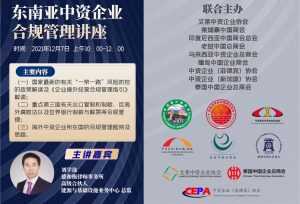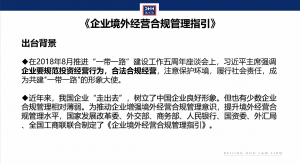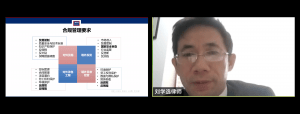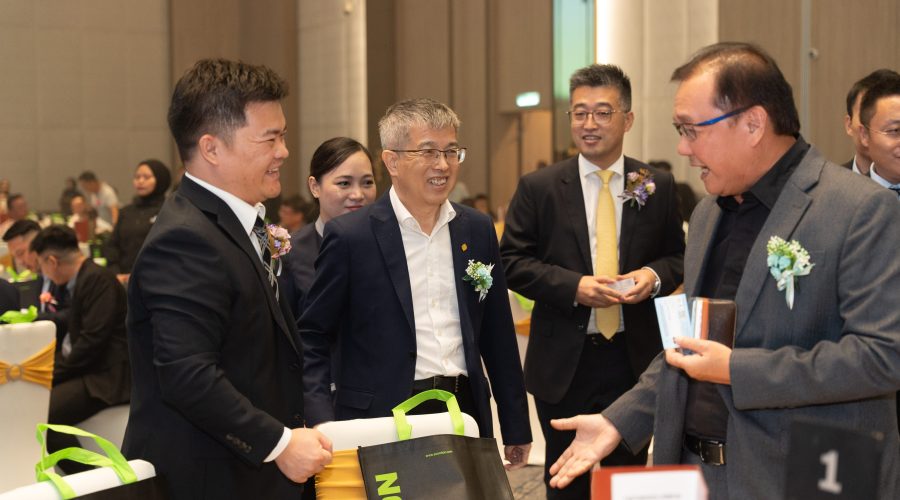
On 7th Dec 2021, China Enterprises Chamber of Commerce in Malaysia (CECCM) and Chinese Enterprises Association in Brunei, Chinese Chamber of Commerce in Cambodia, China Chamber of Commerce in Indonesia Chinese Chamber of Commerce, Laos Chinese Chamber of Commerce, China Enterprises Chamber of Commerce in Myanmar, Chinese Enterprise (Philippines) Association and Chinese-Thai Enterprises Association together with the China Enterprises Association (Singapore) jointly held a webinar titled “Compliance management of the Chinese-funded enterprises in Southeast Asia”. Speakers includes DHH Law Firm’s Senior Partner, Liu Xuexuan. There were more than two hundred representatives of Chinese-funded enterprises from Southeast Asian countries participated online.

Mr. Liu Xuexuan explained in detail the key point for overseas enterprises compliance management as below:
Topic 1: Guidelines for the compliance management of overseas enterprises and the latest overseas compliance management policies.
Topic 2: U.S. Foreign Corruption Practices Act
Topic 3: U.S. Export Control and Sanctions
Topic 4: World Bank sanctions and lifting of the ban
Topic 5. Investment, construction and international trade compliance management framework of destinated country.

During the webinar, he explained in detail the “7 Guidelines for the Compliance Management of Enterprises Overseas Operations” formulated by the commissions, as well as the spirit of recent speeches by state leaders on overseas compliance and corporate legal rules. When explaining the export control and sanctions of the third topic, Mr. Liu explained in depth the impact of the above-mentioned laws and regulations on Chinese-funded enterprises’ related businesses. He also analyzes how companies should establish a compliance management system in the country where the project is located from the perspectives of cross-border investment, financing, international engineering, operation and maintenance, and international trade.
Afterwards, he integrated the characteristics of Southeast Asian countries and explained about the common risk points of overseas compliance and the matters that enterprises should pay attention to. He reminded companies that they should establish a good compliance management and operation mechanism and to always do a good job in the identification, evaluation and disposal of compliance risks to ensure effective risk prevention and control. The QnA session were well-received with overwhelming responses from the participants. He also shared the environmental risk identification and response experience encountered by Chinese-funded enterprises when investing overseas through the cases he has faced through his own work experience.






